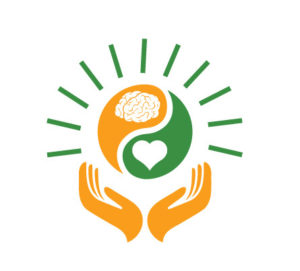
The benefits of cultivating SEL skills in youth goes far beyond success in school. SEL is also valued by employers. Employers are looking for people who can communicte effectively, have empathy for others, know how to set and reach goals, and have the ability to problem solve and tolerate frustration.
Research
http://www.casel.org/research/
Research has shown that having the ability to identify and manage emotions, use higher level thinking skills to problem solve, and getting along with others are very important to the learning process.
Learning SEL skills as a child can have a long term effect in our communities. Positive social skills and behaviors learned as a young child can positively impact the areas of education, employment, and mental health in our communities as those children become adults.
A simple definition for social and emotional learning is the process through which children and adults acquire and effectively apply the knowledge, attitudes, and skills necessary to understand and manage emotions, set and achieve position goals, feel and show empathy for others, establish and maintain positive relationships, and make responsible decisions. (CASEL. What is SEL? February 2017).
There are five core social and emotional learning competencies that are typically taught as part of a social and emotional learning program. These five core competencies have been identified be the Collaborative for Academic Social and Emotional learning (CASEL).
All the work we do is based on teaching youth these five core SEL competencies because research shows that if youth learn these skills they will be successful adults! Self-awareness, self-management, social awareness, relationship skills, and responsible decision making are the foundations for everything that we do in life! You can be smart, have high intelligence, but if you lack these competencies, you will struggle to be successful.
.
It doesn’t start with only teaching youth the skills! The most successful schools and organizations coordinate and create a framework for their social and emotional learning curriculum instruction within a greater overall strategic plan that includes teacher and staff professional development and schoolwide policies and practices as well as a plan for sustainability.

(CASEL. Core Competencies. February 2017)
The benefits of cultivating SEL skills in youth goes far beyond success in school. SEL is also valued by employers. Employers are looking for people who can communicate effectively, have empathy for others, know how to set and reach goals, and have the ability to problem solve and tolerate frustration.
Here’s how learningSELally can help! We have expertly supported schools and organizations identify needs and readiness for SEL program implementation, created plans for schoolwide policies and practices, provided training and technical assistance, and developed sustainability frameworks for over 15 years. Contact us (link to contact us page) for a free consultation for your needs and how our services
Social and Emotional Learning Research
Research shows infusing social and emotional learning can benefit us all and our communities in a variety of ways. There are academic gains for schools that consistently and comprehensively implement SEL programs. Teaching SEL skills to youth in all economic conditions levels the playing field in areas of education, employment, and family life. Gaining SEL skills in the early years of a child’s life can show positive outcomes for them later in life. There are documented cost benefits to communities where SEL programs are implemented and there is a connection between SEL skills and employability.
Research has shown that having the ability to identify and manage emotions, use higher level thinking skills to problem solve, and getting along with others are very important to the learning process.
Learning SEL skills as a child can have a long term effect in our communities. Positive social skills and behaviors learned as a young child can positively impact the areas of education, employment, and mental health in our communities as those children become adults.
To find out more and see the most recent SEL research, visit the CASEL research page.
